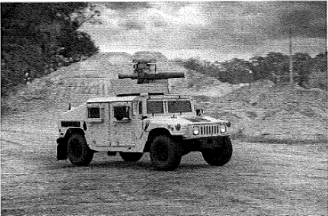Gaming Industry Insight -- Realism May Overcome Copyright and Trademark Rights
Online games have exploded in popularity during the COVID-19 coronavirus pandemic, and the unauthorized use of real-life images to make those games realistic has been found permissible despite intellectual property rights in those images.
Two cases, decided within five days of each other by different judges in the United States District Court for the Southern District of New York, held that gaming realism defeated copyright or trademark rights.
NBA Player Tattoos

Take-Two Interactive Software, Inc. released a basketball simulation video game that included lifelike depictions of NBA players, including their tattoos. Solid Oak Sketches, LLC sued for copyright infringement on the ground that Solid Oak had an exclusive license to five of the tattoos worn by the players and shown in the games.
Take-Two moved for summary judgment that the suit be dismissed on the grounds that:
- The tattooists necessarily had granted the players implied nonexclusive licenses to use the tattoos as part of the players’ likenesses, and the players had granted Take-Two permission to use their likenesses; and
- Take-Two’s use of the tattoos was fair use.
District Judge Laura Taylor Swain decided in Take-Two’s favor on both grounds.
The implied licenses, which preceded Solid Oak’s license, derived from the fact that the tattooists had not requested that the players limit the display or depiction of the images tattooed on their bodies, nor had the players agreed to any such limitation.
Take-Two’s use of the tattoos was fair use because:
- The use was transformative in that the tattoos were included to depict the players accurately and not for their expressive value, were significantly reduced in size, were used infrequently, were only imprecisely observable, and were incidental to the commercial value of the game;
- the use of the tattoos was more factual than creative;
- Take-Two did not use more of the tattoos than was necessary to create a realistic game experience; and
- The use did not diminish an alleged but nonexistent market for licensing tattoos for use in video games or other media.
Solid Oak Sketches, LLC V. 2K Games, Inc., 16-cv-724 (S.D.N.Y. March 26, 2020)
Humvee vehicles

AM General LLC (AMG) manufactures a High Mobility Multipurpose Wheeled Vehicle (colloquially known as the “Humvee”) sold to military forces around the world.
Activision released a popular realistic series of video games called Call of Duty, which included unauthorized depictions of Humvees, sometimes shown in trailers for the games. AMG sued Activision for trademark infringement and similar causes of action.
Activision moved for summary judgment that the suit should be dismissed on the ground that Activision’s games were protected speech under Rogers v. Grimaldi, 875 F.2d 994 (2d Cir. 1989), because the games were artistic or expressive works as to which the Humvees had artistic relevance and the use of the Humvees did not explicitly mislead as to the source or content of the games.
District Judge George B. Daniels, balancing the Rogers factors, decided in Activision’s favor, holding:
- Featuring actual military vehicles evoked a sense of realism that had a relevant artistic value that was at least “above zero.”
- The uses of Humvees were not explicitly misleading as to source because:
- the uses were dissimilar, in that AMG’s purpose was to sell vehicles to military forces, whereas Activision’s was realistically to simulate modern warfare in video games for purchase by consumers;
- the products were not proximate, in that video game licensing was not the central purpose or focus of AMG’s business of selling vehicles;
- there was no evidence that AMG was likely to bridge the gap by entering the video game industry;
- a survey showed actual consumer confusion of only 16%, which is only some confusion that was outweighed by free speech interests;
- bad faith was not established by Activision’s boilerplate stating that all elements of the games belonged to it; and
- consumer sophistication was irrelevant since military forces were not buying Call of Duty games, and vice versa.
AM General, LLC v. Activision Blizzard, Inc., 17-cv-8644 (S.D.N.Y. March 31, 2020).
Takeaway
These two video game cases presented infringement claims as to unusual intellectual property subject matter—tattoos and vehicles. They also concerned different intellectual property rights—copyright and trademark. But the decisions were consistently in favor of the defendants and followed established legal analysis.
- Copyright will not prevent the unauthorized use of a work if the facts establish an implied license or the use qualifies as a fair use.
- Trademark will not prevent the unauthorized use of a mark if the facts establish that the use is for an expressive work as to which the mark has some artistic relevance, and the use is not explicitly misleading as to source, even if there is some likelihood of confusion.
However, each case is decided on its own facts. If you are going to make any significant use of someone else’s intellectual property in your online game, no matter how unusual that property may be and how strong you believe your defense to an infringement claim is, you should consider the value of getting a license in order to avoid the expense and diversion of your attention in having to deal with an infringement claim.
For further information contact William M. Borchard or your CLL attorney.
William M. Borchard

Counsel
Email | 212.790.9290
Bill advises on domestic and international trademark matters at the highest level. His practice consists of counseling clients and handling domestic and international trademark and copyright matters including clearance, registration, proper use, licensing, contested administrative proceedings and infringement claims.